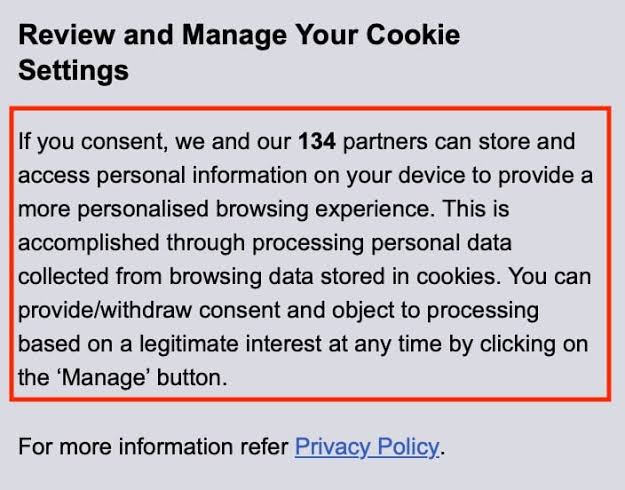
Here’s an article:
Managing Cookies and Personal Data: Understanding Your Rights
In today’s digital landscape, online privacy has become a pressing concern. As users navigate websites and online platforms, they often encounter cookie consent notifications. But what do these notifications mean, and how can users manage their cookies and personal data?
Understanding Cookies
Cookies are small text files stored on a user’s device by a website. They contain information such as user preferences, login details, and browsing behavior. Cookies can be categorized into two types:
1. Essential Cookies: These cookies are necessary for the website to function properly. They enable basic features such as navigation, login, and payment processing.
2. Non-Essential Cookies: These cookies are used for analytics, advertising, and personalization. They help website owners understand user behavior, tailor content, and deliver targeted advertisements.
Managing Cookies and Personal Data
When encountering cookie consent notifications, users have the option to:
1. Accept All Cookies: By accepting all cookies, users consent to the processing of their personal data for both essential and non-essential purposes.
2. Reject Non-Essential Cookies: Users can reject non-essential cookies, opting out of targeted advertising, analytics, and personalization.
3. Adjust Cookies Preferences: Many websites offer users the option to adjust their cookies preferences, selecting which types of cookies to accept or reject.
Conclusion
Managing cookies and personal data is an essential aspect of online privacy. By understanding the different types of cookies and adjusting their preferences accordingly, users can take control of their personal data and browsing experience.
What do you think about cookie consent notifications and online privacy?
Share your thoughts!
Would you like me to:
1. Add images or infographics?
2. Include additional information about online privacy regulations?
3. Modify the tone or format?
Please let me know!





